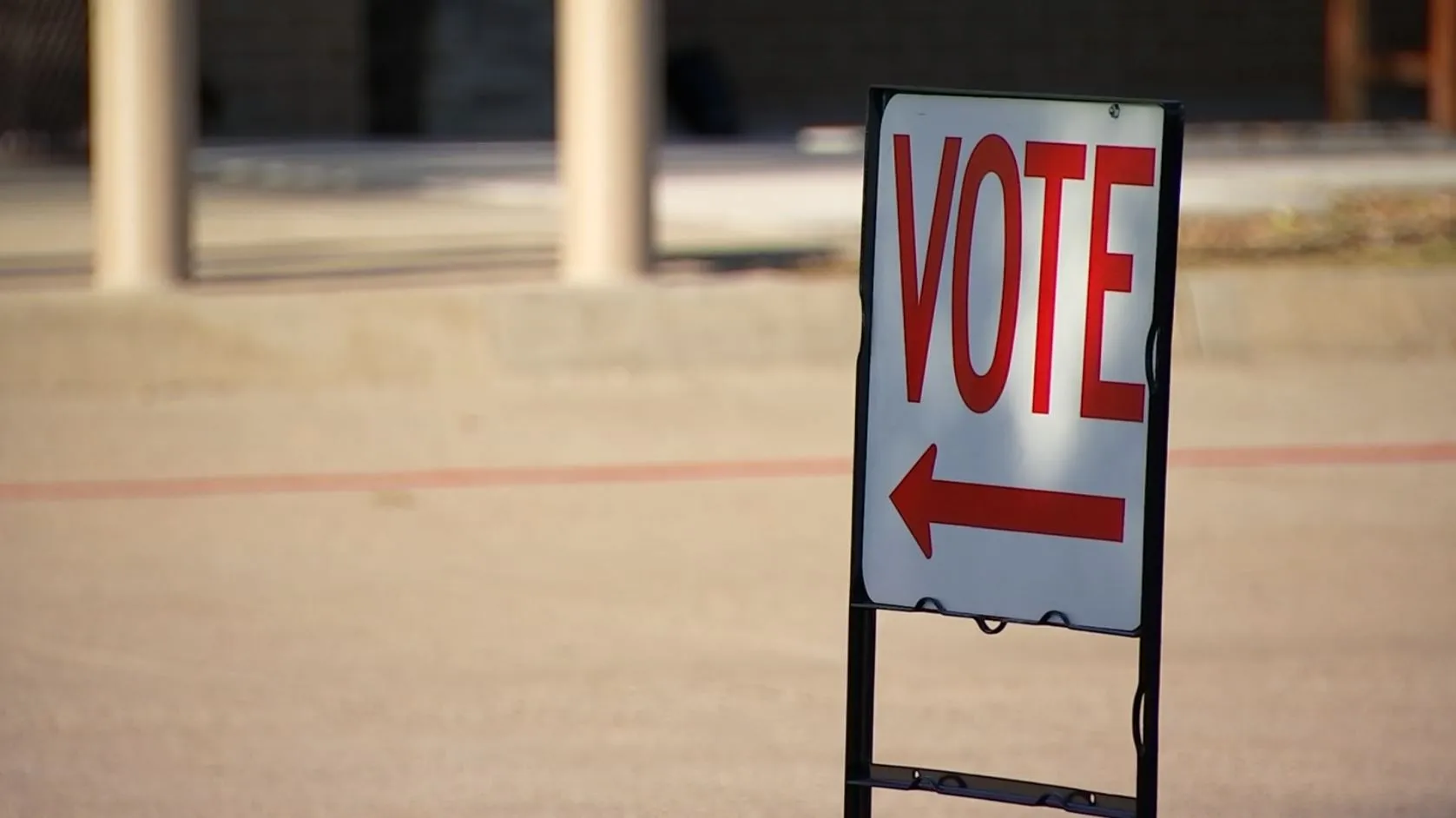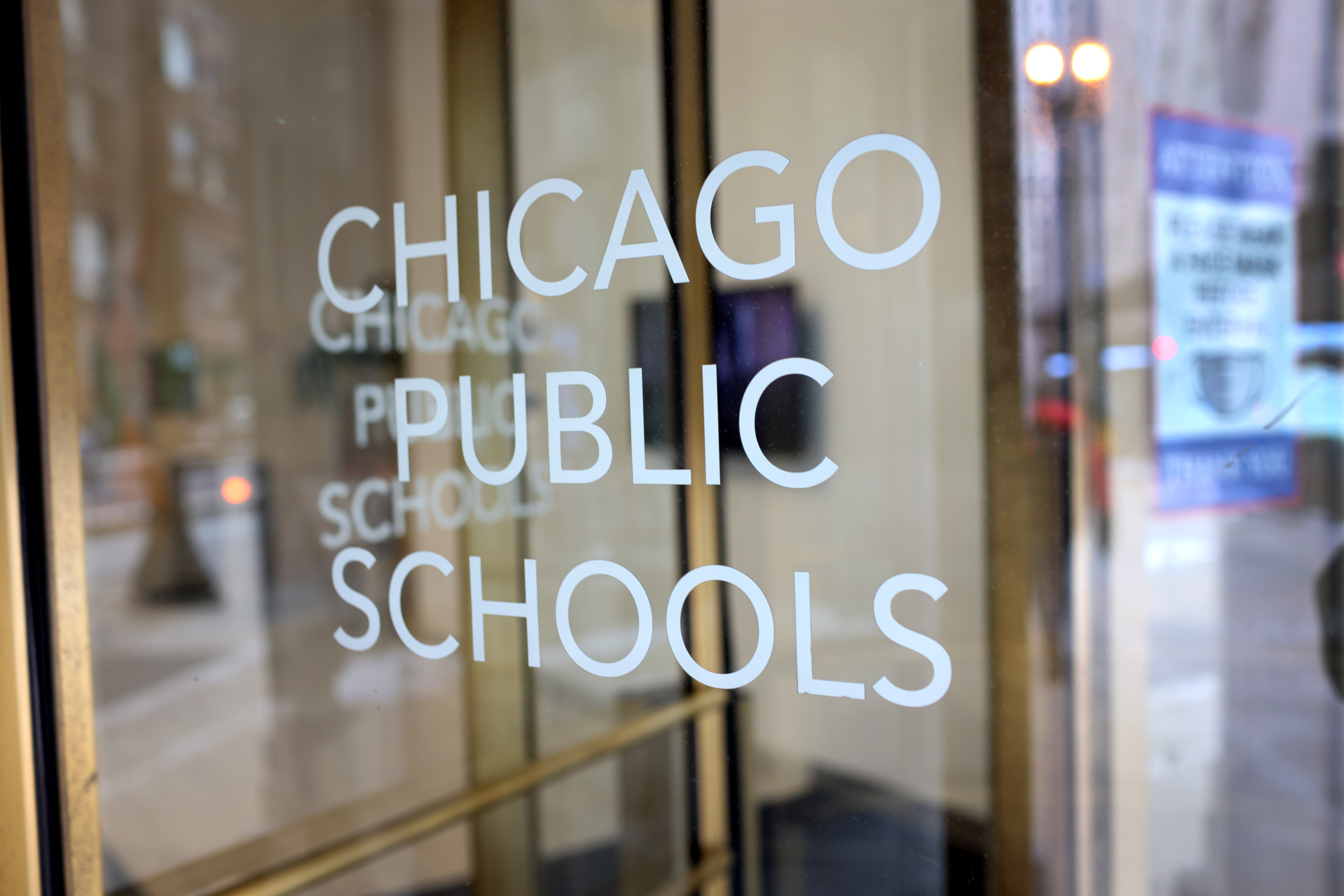The proposal on every ballot in Illinois to change the state’s income tax from a flat rate to a graduated tax was rejected, the Associated Press projected early Wednesday, as the vote trailed by a 10-point margin and the committee pushing for its passage conceded defeat.
Votes against the proposal were leading 55% to 45%, more than 2.7 million votes against to more than 2.2 million votes in favor, with 98% of precincts reporting statewide, election results showed at around 8:45 a.m. early Wednesday.
“We are undoubtedly disappointed with this result but are proud of the millions of Illinoisans who cast their ballots in support of tax fairness in this election," Vote Yes For Fairness Chairman Quentin Fulks said in a statement.
“Illinois is in a massive budget crisis due to years of a tax system that has protected millionaires and billionaires at the expense of our working families, a crisis that was only made worse by the Coronavirus pandemic," he continued. "Republican legislators and their billionaire allies who brought us the dysfunction and pain of the Rauner years continue to stand in the way of common sense solutions, choosing instead to play partisan games and deceive the working families of our state. Now lawmakers must address a multi-billion dollar budget gap without the ability to ask the wealthy to pay their fair share. Fair Tax opponents must answer for whatever comes next.”
Fulks' statement was his second made as results continued to roll in, after first urging patience in counting outstanding votes on Tuesday night.
The measure was a proposed amendment to the Illinois Constitution, which can be ratified one of two ways: if three-fifths (or 60%) of people voting on the amendment approve it, or if a simple majority (50% plus one) of all voters, including those who skip the question on their ballots, approve it.
Illinois election officials said Tuesday night that they estimated somewhere between 300,000 and 400,000 remained unreturned by Election Day and could continue to arrive within the two-week window in which they can legally be counted, potentially impacting the outcome of some races.
Local
Those outstanding ballots and the uncertainty surrounding the results led supporters of the amendment to declare that the outcome of the statewide vote wouldn’t be known until all ballots are counted. Still, the margin by which “No” votes were ahead led opponents of the measure to declare victory Tuesday night.
"When all the votes are counted, we believe there will be more 'no' votes than 'yes' votes, and that will be a win for small business owners, middle-class families, family farmers, retirees, and large employers,” Lissa Druss, spokeswoman for the Coalition to Stop the Proposed Tax Hike Amendment, said in a statement. “In this election, Illinois voters sent a resounding message that with an $8 billion deficit and two massive tax hikes in the last ten years, we cannot trust Springfield Politicians with another tax hike."
Even before Election Day, Illinois election officials noted this race in particular as one for which results would likely not be definitively known on election night due to the formula for its approval.
"The constitutional amendment on this year’s ballot can pass if it receives 60 percent approval from voters who vote on the question or a simple majority of affirmative votes among all ballots cast in the election" the Illinois State Board of Elections said in a statement Monday. "Because of this formula, the fate of the amendment may not be known on election night even when accounting for mail ballots not yet returned"
If ratified, the amendment would have changed Illinois’ current flat tax rate, which is one rate for all, regardless of how much money you make, to a graduated income tax. A graduated income tax, also called a progressive tax, is a tax structure that levies increasingly higher tax rates on higher-earning individuals or businesses. Essentially, under this kind of system: the more you make, the more you pay.
Thirty-two other states in the U.S. and Washington, D.C., all have some form of a progressive income tax, ranging from 0% on the lowest earners in South Carolina to as high as 13.3% on incomes over $1,000,000 in California. Illinois and its Midwestern neighbors Indiana and Michigan are three of eight states that impose a flat tax.
Illinois' current individual income tax rate is a flat 4.95% for everyone. It's a flat rate across the board because the Illinois Constitution dictates that any income tax imposed by the state be "at a non-graduated rate." Any amendment to Illinois' Constitution, including the removal of that requirement, requires ratification by voters in a general election.
In May 2019, the General Assembly passed and Gov. J.B. Pritzker signed two separate pieces of legislation to change to a graduated income tax: a Constitutional amendment to repeal the state's flat tax requirement, and a new law to set the rates.
In 2018, Pritzker campaigned in part on a promise to implement a progressive income tax on the state's wealthiest individuals. As governor, he faces a budget deficit drastically worsened by the coronavirus pandemic, as businesses shut down for months and skyrocketing unemployment cratered state revenues, namely income and sales taxes.
Pritzker warned in April that Illinois’ budget shortfall could balloon to $7.4 billion over the next two fiscal years if the graduated income tax amendment does not pass. Lt. Gov. Juliana Stratton issued another warning in September, saying that if it doesn't pass, lawmakers "will be forced to consider raising income taxes on all Illinois residents by at least 20%."
Illinois' first income tax rate was 2.5%, implemented in 1969 and in place through 1982. From 1983 and 2010, the rate fluctuated between 2.5% and 3%, where it stayed from 1990 to 2010. Facing a multibillion-dollar budget deficit in early 2011, then-Gov. Pat Quinn signed a temporary tax increase into law that hiked the rate to 5% through the end of 2014, when it was scheduled to sunset. Quinn lost his bid for reelection to Gov. Bruce Rauner in November 2014, and on Jan. 1, 2015, just before Rauner took office, the rate automatically dropped to 3.75%.
Rauner campaigned on proposals to limit the power of public employee unions, change the workers compensation system and more to bolster Illinois' economy, rather than increase taxes. That put him at odds with the Democrat-controlled legislature, and thus ensued a more than two-year state budget impasse - the longest in U.S. history - that devastated schools and social service agencies statewide and ballooned Illinois’ bill backlog to more than $14 billion, worsening the state's already tenuous financial situation. In 2017, the legislature, in a bipartisan vote, overrode Rauner's veto of a budget that included a tax increase, ending the impasse and bringing the rate back up to 4.95% where it remains today.
The amendment’s passage alone wouldn't have change the rates – it only allowed for the graduated tax structure. The second piece of legislation on this issue signed in 2019 set new rates that would have taken effect on Jan. 1 should the amendment have passed, establishing ladder-style brackets with a top rate of 7.99% on single filers earning more than $750,000 and joint filers earning more than $1 million a year.
Under the proposed structure, anyone making less than $250,000 a year would have continued to pay the current rate of 4.95%, with a slight decrease in the rates on their income up to $100,000. Pritzker has often said this means 97% of Illinois residents would have paid the same or less in state income taxes.
Democratic officials largely expressed support for the change to what Pritzker’s dubbed a “fair tax,” while the generally tax-averse Republicans in Springfield all voted in lockstep against the measure, warning that the state needs structural changes like pension reform before looking to increase revenue. Interest groups on both sides of the issue launched aggressive campaigns both in favor and against the progressive tax structure.
The Vote Yes for Fairness committee was funded almost exclusively by Pritzker, who contributed a whopping $58 million to the effort.
Pritzker himself is the richest elected official in the country, with Forbes estimating the Hyatt Hotel heir's net worth at about $3.4 billion. Portions of annual tax returns he’s made public show he’s reported millions of dollars in income each year – meaning he would have been among those paying more under the progressive tax structure he’s backing.
The Coalition to Stop the Proposed Tax Hike Amendment committee was funded in large part by another billionaire: Ken Griffin, the founder of hedge fund Citadel who is Illinois’ richest man, with Forbes estimating his net worth to be about $15 billion. A big-time Republican donor who previously gave Rauner’s campaigns more than $36 million, Griffin put more than $53.7 million into the effort to stop the graduated tax.
Those opposing the amendment said it would have driven businesses and residents from the state and potentially stifle the economic recovery from the pandemic. Some also argued that it does not have any requirements on how the legislature is allowed spend the additional revenue and could have paved the way for lawmakers to raise taxes again in the future – though the General Assembly has always held this authority, just previously confined to a flat rate.



